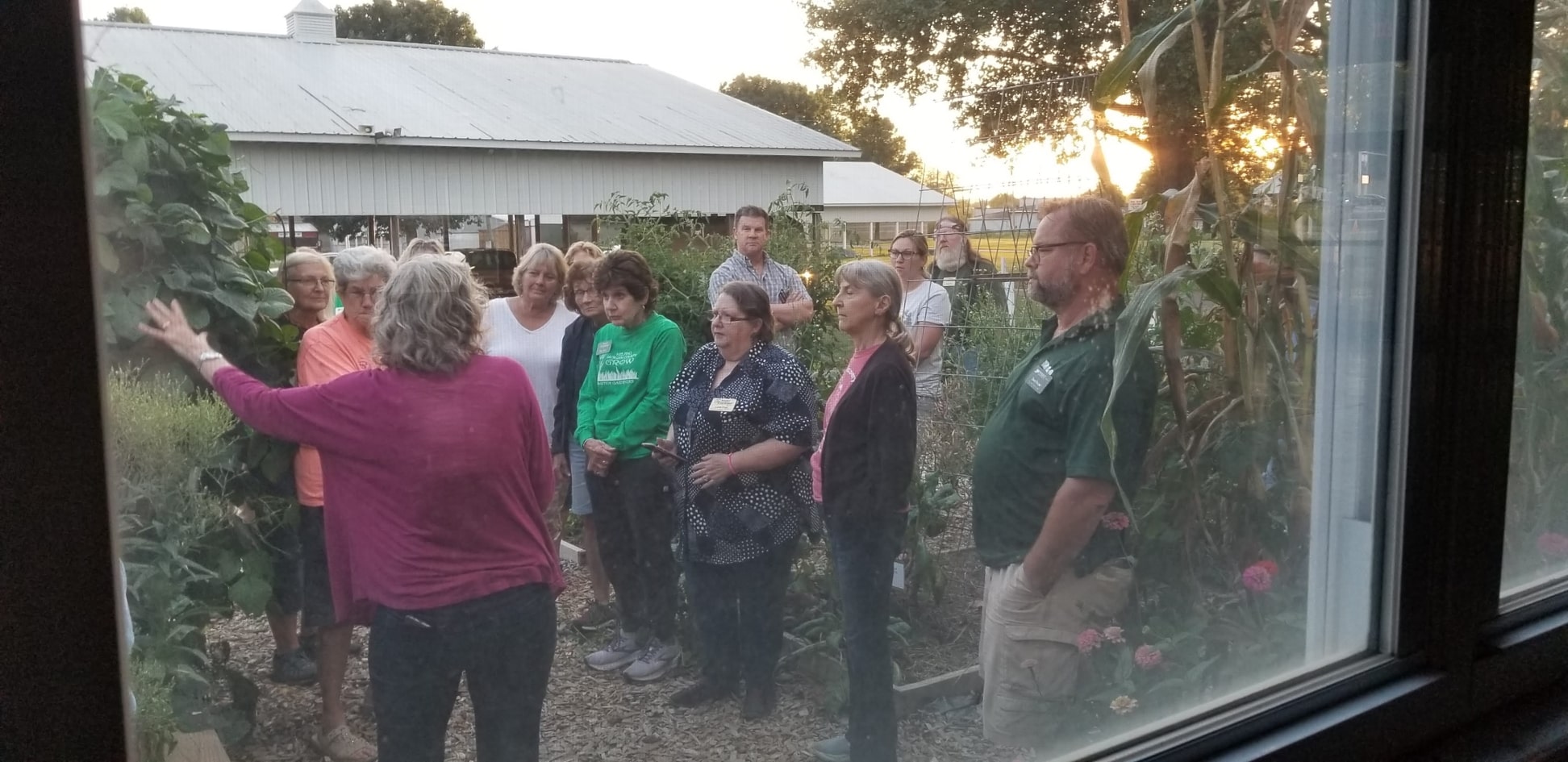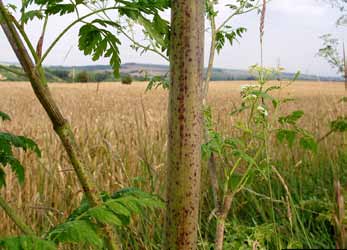Morgan County Agriculture and Natural Resources
What We Do
Purdue Extension Morgan County delivers practical, research-based information that transforms lives and livelihoods. We offer programs and information on agriculture production and financial management for farmers, food and fiber processors, manufacturers, and consumers. We also provide expertise in environmental issues, natural resource conservation, and land use. We coordinate, train, and supervise Extension Master Gardener Volunteers.
Do You Want to Be a Morgan County Master Gardener? Add Yourself to the Interest List Today!

Poison Hemlock: How to Identify It
Poison Hemlock is currently in flower and can be found in fence rows and on roadsides in Morgan County. The whole plant is toxic due to the alkaloids it contains and should not be ingested.
Poison hemlock is a biennial weed that exists as a low-growing herb in the first year of growth and bolts to three to eight feet tall in the second year, when it produces flowers and seed. It is often not noticed or identified as a problem until the bolting and reproductive stages of the second year. The alternate compound leaves are pinnate (finely divided several times) and are usually triangular in outline. Flowers are white and occur in an umbel inflorescence. Poison hemlock is often confused with wild carrot but can be distinguished by its lack of hairs and the presence of purple blotches on the stems.

Figure 1 Poison Hemlock First Year Rosette

Figure 2 Poison Hemlock Stem
Information on controlling Poison Hemlock can be found here: https://www.extension.purdue.edu/extmedia/fnr/fnr-437-w.pdf
If you have any questions or need help identifying this plant please contact the Morgan County Extension Office. 765-342-1010
